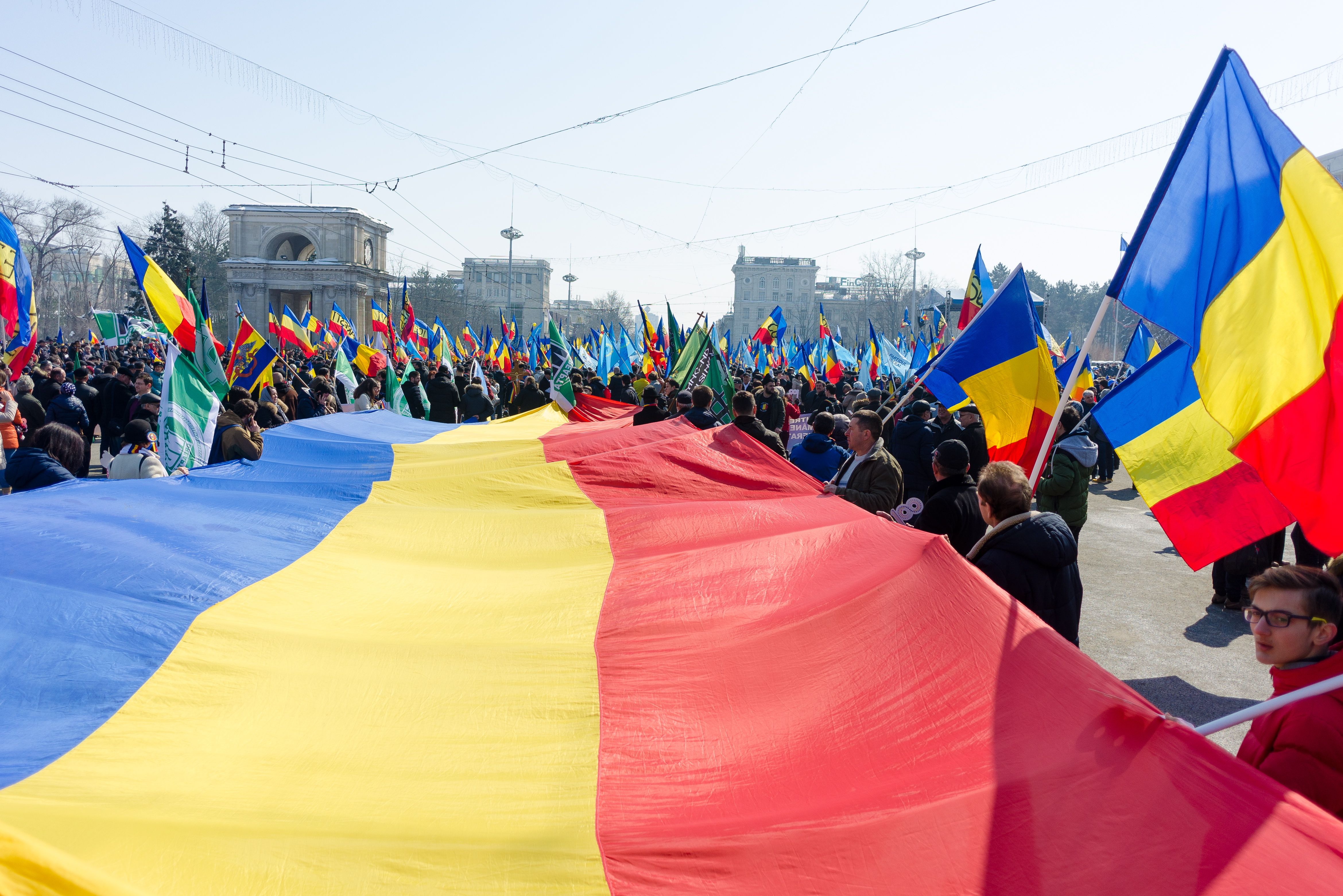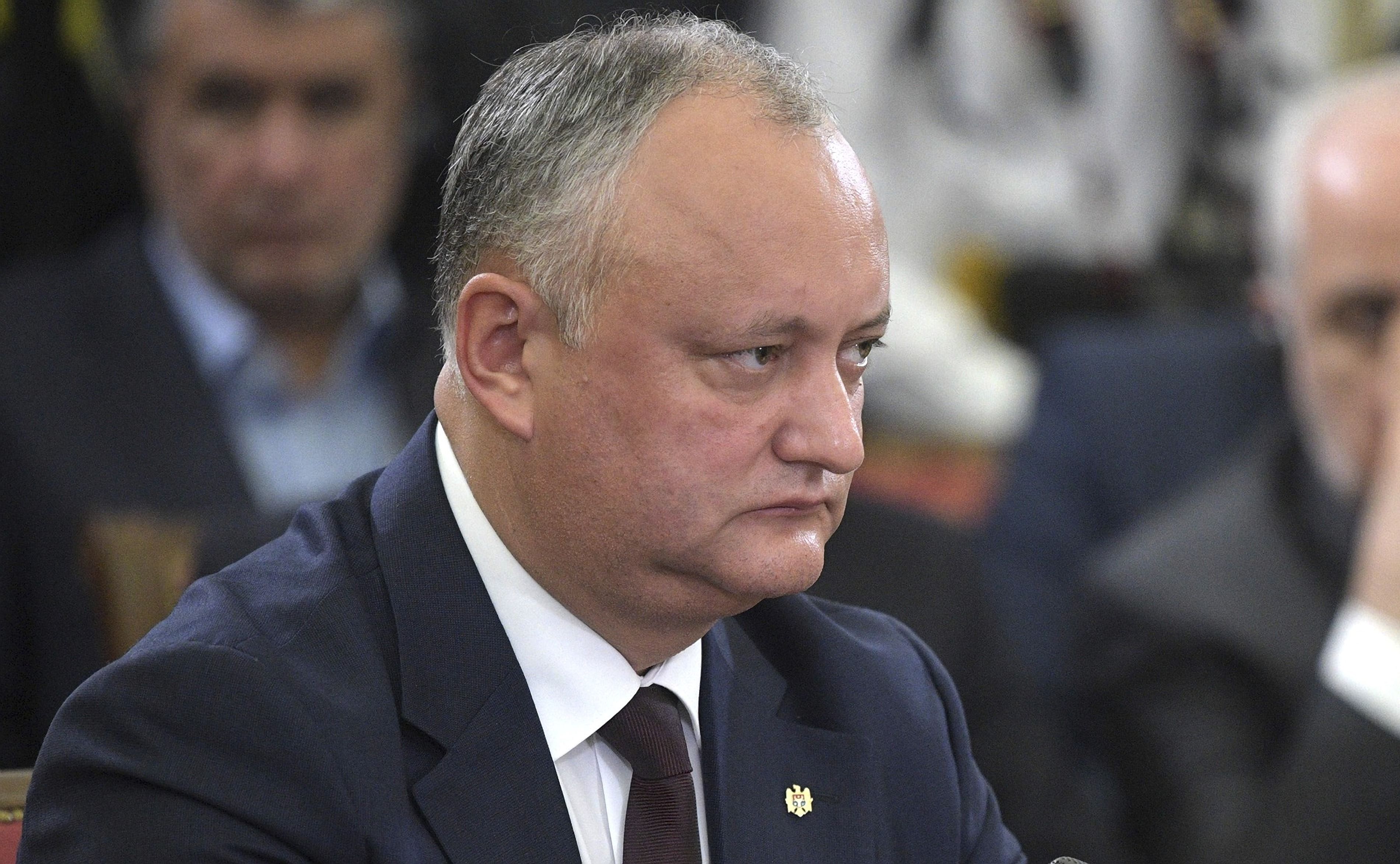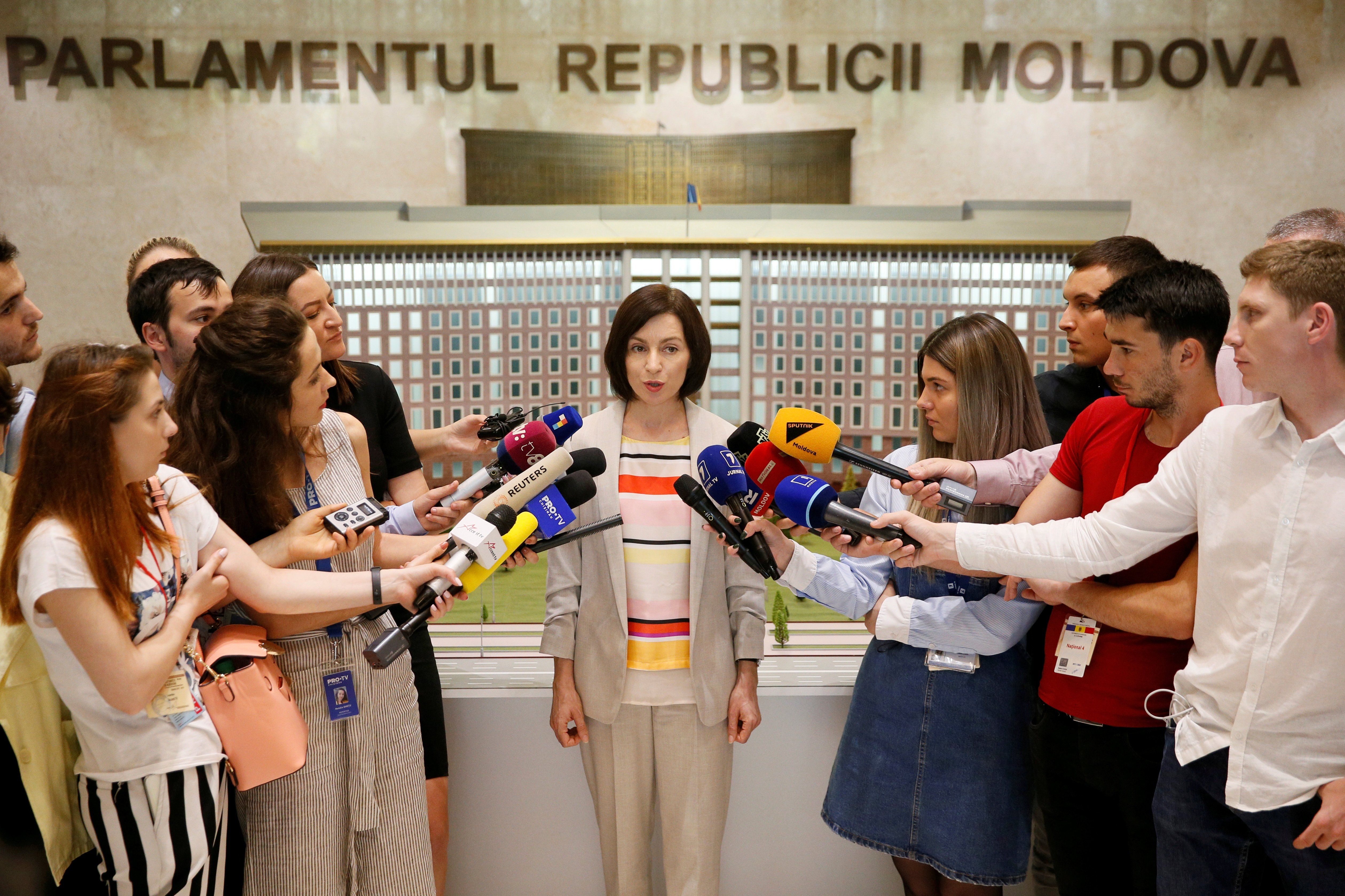Reorientation of Romania’s Moldova Policy

Romanian Identity in Moldova
Romania recognises Moldova as a second Romanian nation-state because it was created from Romanian territories between the Dniester and the Prut annexed in 1940 by the Soviet Union. Therefore, all parties in Romania recognise the uniqueness of relations with Moldova and, as a strategic goal, its accession to the EU. Asked about the unification of the two countries, an Inscop survey of May 2019 found 65% support it and 22% of Romanian citizens are against it. Only the small centre-right People’s Movement Party outright has demanded reunification, but no political party can afford to criticise this idea, as demonstrated by the public outrage when President Klaus Iohannis called by mistake Romanians and Moldovans “two nations”.
According to the 2014 census, 7% of the residents of Moldova (outside Transnistria) consider themselves Romanians. To support Romanian identity, Romania annually has given about 5,000 scholarships to Moldovan university and high school students. Also, it grants Romanian citizenship to the descendants of its former citizens. According to former Romanian President Traian Băsescu (as official data are not public), as many as 1 million of the 3.5 million residents of Moldova have received Romanian citizenship. However, they are not very active in the political life of Romania, probably because the majority apply for citizenship only to travel freely and work legally in the EU. This is evidenced by the cases of members of the Moldovan Party of Socialists who, despite open hostility to Romania, obtained citizenship.
According to an IMAS poll from December 2019, unification is supported by 34% of Moldovan citizens. However, these results are not so much because of greater identification with Romania but rather from the loss of faith in the reform of their state and European integration. The real unification electorate is about 10%, though it dispersed to other groupings after the Liberal Party which had gathered them disgraced itself by cooperating with oligarch Vlad Plahotniuc, resulting in not entering parliament in 2019 for the first time in years.
Romania’s Incorrect Calculations
Although one of the main proponents of Moldova’s European integration, Romania in recent years has contributed to the wasting of the chance at a thorough pro-European change in Moldova. Romania supported politicians who simulated reforms but in return accepted the Romanian vision of Moldova’s history. This is especially true of Plahotniuc, who behind the scenes ruled the country in 2016-2019. Romanian authorities blocked the conclusions of the EU Council condemning the undemocratic and corrupt system created by the oligarch and granted Moldova a loan of €60 million when the EU and International Monetary Fund refused. In June 2019, Romania tried to mediate on behalf of Plahotniuc and delayed the recognition of the new government led by Maia Sandu from the opposition pro-European bloc ACUM, which was formed with the support of the EU, U.S., and Russia.
Prime Minister Sandu on her first visit went to Bucharest sought unsuccessfully additional immediate help for her government. The Romanian authorities were unable to provide it because they were not prepared for such a scenario. This is evidenced by the fact that until the fall of Plahotniuc they had ignored cooperation with ACUM. Only in November 2019 did Ludovic Orban, the newly appointed prime minister of Romania, announce a plan to establish a special department responsible for intensifying relations and to go to Chişinău as for his first foreign visit. However, still in November in Moldova, the Party of Socialists voted a motion of no-confidence in the Sandu cabinet, and Ion Chicu created a new government completely subordinated to President Igor Dodon.
Moldova’s Instrumental Policy
This autumn, President Dodon needs to win re-election for the Socialists to fully take control of state institutions and enterprises. To broaden the electorate, he is running instrumental foreign policy. Despite unequivocally pro-Russia attitudes, he also is declaring his willingness to cooperate simultaneously with the EU and the Eurasian Economic Union. He is interested in European macroeconomic assistance, which cannot be replaced by Russia, with its budget strained by sanctions.
Dodon, although making seemingly friendly gestures towards Romania, tries to discredit its policy towards Moldova. He has invited Iohannis to visit Chişinău and declared his desire to come to Bucharest. He calls Romania a strategic partner and Romanians “brothers from behind the Prut”. The provocative nature of these gestures stems from Dodon’s constantly setting himself apart as the defender of Moldovans against Romania’s attempt at romanisation. He demands the Romanian language used in the country be called Moldovan, threatens to outlaw the unification movement, and even accuses Romania of occupation of half of historic Moldova. That is why the Romanian authorities, to not legitimise his policy, avoid contact with him. In January 2020, Prime Minister Orban also cut ties with the Chicu government and President Iohannis announced the suspension of Romanian assistance to Moldova. In the EU, Romania explains this by Moldova’s failure to comply with pro-European reforms, especially of the justice system.
Changes in Romanian Assistance to Moldova
However, Romania has announced the continuation of assistance, but only that intended to directly serve the people of Moldova. The Romanian authorities began looking for a formula for distribution of this aid through pro-Romania local governments, bypassing the government in Chişinău.
Romania is still one of Moldova’s biggest donors. In 2014, it launched a €100 million fund that until now has renovated 920 kindergartens and bought 196 school buses. Most of Romania’s bilateral development assistance also goes to Moldova—in 2018, it amounted to almost $34 million, or 63.9% of the funds. In the framework of the European Neighbourhood Instrument for 2014–2020, Romania implemented projects in Moldova worth €89 million. It also remains the main trade partner of the Moldovan economy: in 2019, Romania received 27.5% of its exports and was the source of 14.4% of its imports.
Romania also intends to complete its plan to make Moldova’s energy sector independent of Russia. Since 2014, the Romanian state-owned Transgaz has been building the 120 km cross-border Iaşi-Ungheni-Chişinău gas pipeline. However, as the deadline for its completion has been postponed several times, Moldova last year extended the contract for gas imports from Russia. With the coming into power in Moldova of the Party of Socialists, Transgaz, which had announced it would complete the pipeline this year, has stopped work. A similar fate may be encountered in the Isaccea-Vulcăneşti-Chişinău cross-border high voltage line, whose construction was agreed last August. It could make Moldova independent of electricity from the Kuchurgan Power Plant in Transnistria belonging to the Russian firm Inter RAO (supplying about 70% of Moldova’s demand).
Conclusions and Perspectives
The overarching goal of Romania’s policy towards Moldova is to strengthen the Romanian identity of its inhabitants. Not wanting to legitimise the anti-Romania policy of Dodon and the Chic government, the authorities in Bucharest are minimising official contacts with them. A different policy could be recognised by Romanian society as a betrayal of the national interest. This situation will continue at least until the autumn presidential elections in Moldova. If Dodon wins, it will become the long-term position. This has precedent—in 2002-2009, Romania limited contact with the hostile Moldovan President Vladimir Voronin and the governments of his Communist Party.
Romania treats Moldova’s membership in the EU as the only feasible form of abolishing the border on the Prut that divides the countries. That is why it will not give up supporting pro-European changes in Moldova. This is evidenced by Romania’s wish to implement joint ventures at the level of Moldovan local governments, bypassing the authorities in Chişinău. Unlike Plahotniuc in the past, the Romanian authorities will not be willing to defend the Socialists at the EU. This will allow the Union to resolve issues with the Moldovan authorities more effectively based on the commitments made in the Association Agreement, including fighting corruption. At the same time, Romania, acting as a state particularly well-oriented in the situation of Moldova, may urge EU institutions and countries to strictly assess potential reforms in order to cut off the anti-Romania authorities from EU support.





